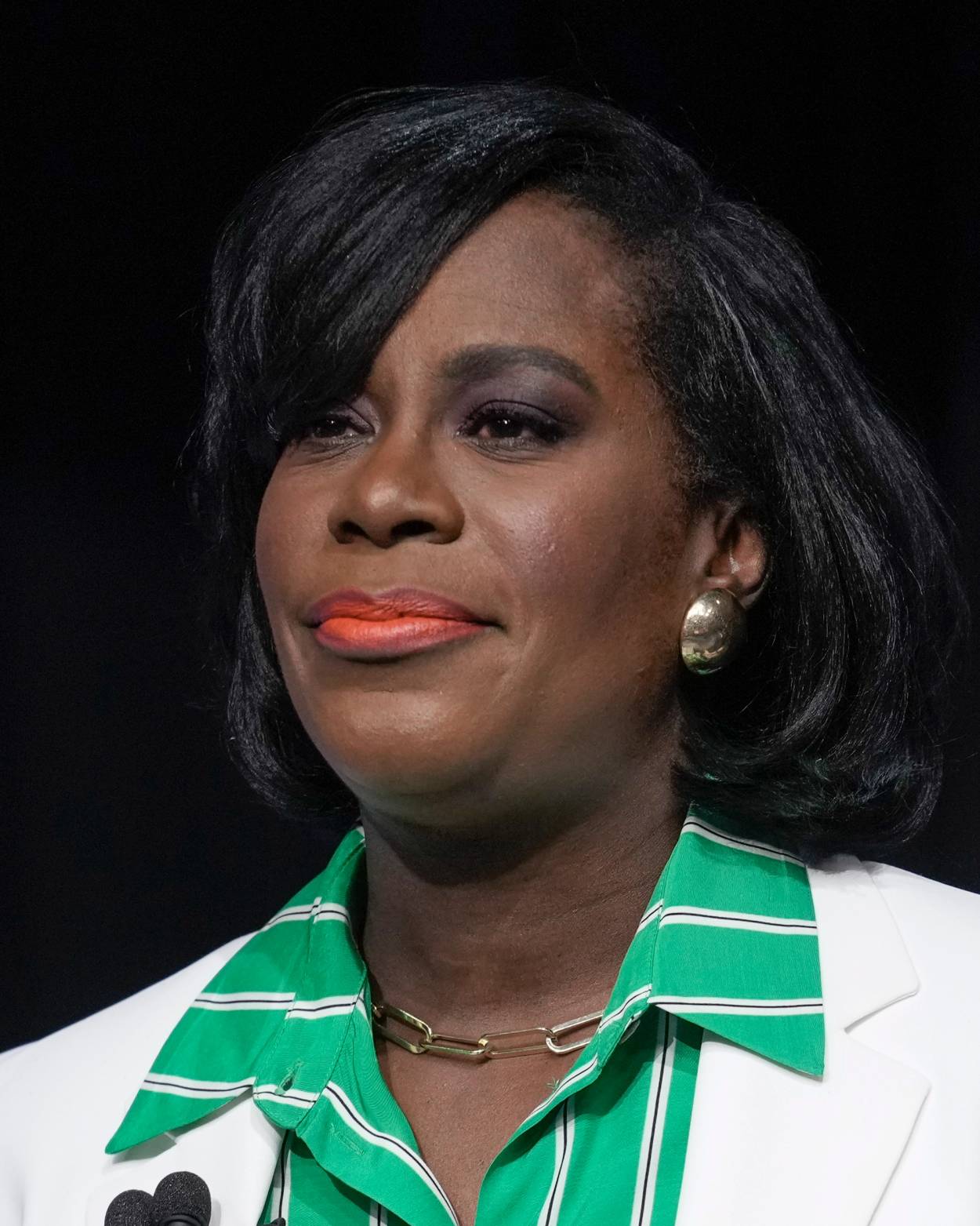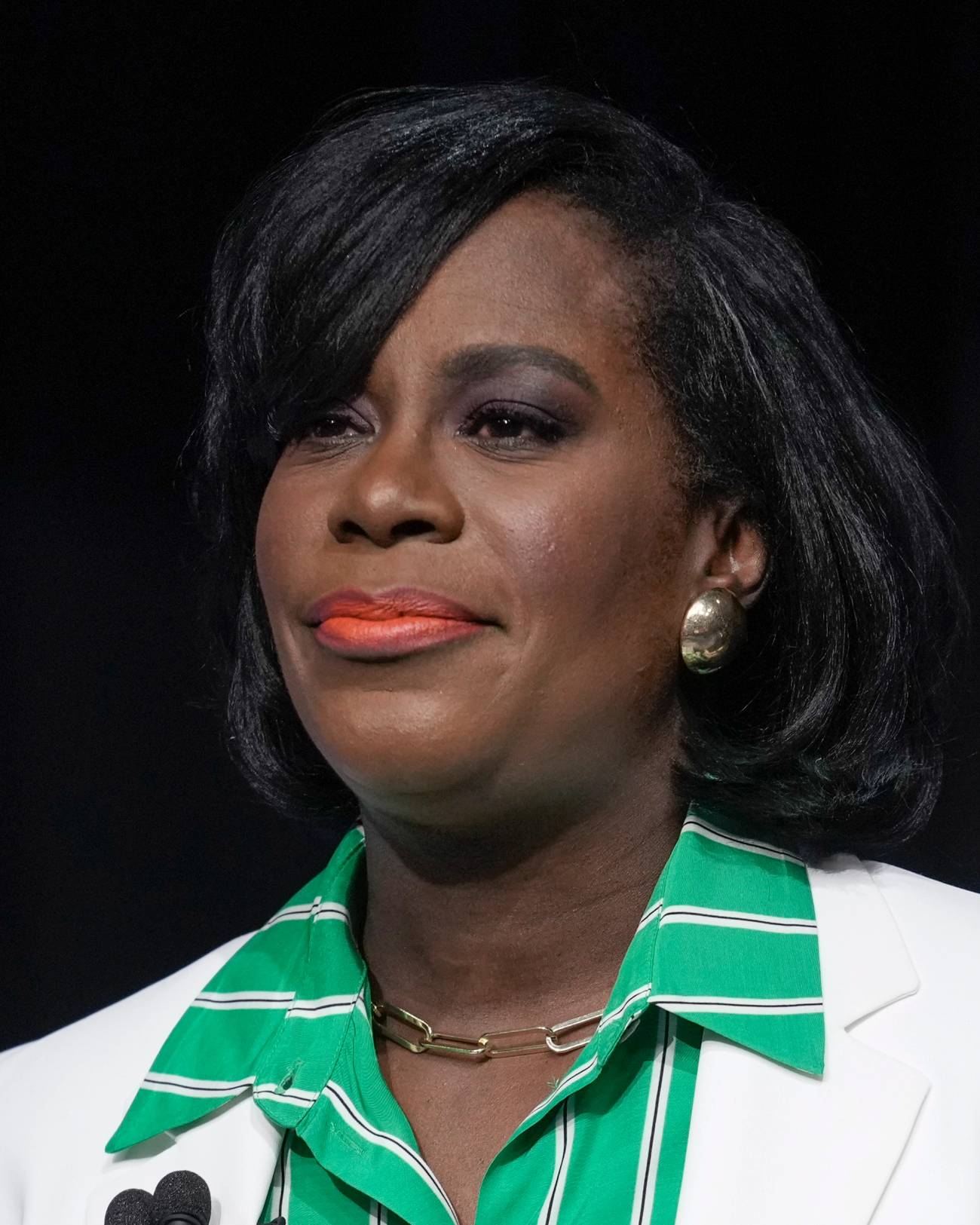Urban Progressivism’s National Tour Crashes in Philadelphia
With crime spiraling in big cities, Philly voters chose a law-and-order candidate in Tuesday’s Democratic primary




No matter who won Tuesday night’s Democratic primary in the Philadelphia mayor’s race—with the victor all but assured to ascend to City Hall, as Democrats have won every general election in the city going back to the 1950s—the single most important issue for voters was the intertwined gun and drug epidemics. Street shootings and overdoses, not to mention a recent surge in carjackings, have trickled into even Philadelphia’s toniest neighborhoods, engendering a collective fear about public safety that harked back to the rampant violence of the early 1990s that many had assumed the city had left behind.
Well before the sun had risen on Wednesday morning, the race was called for longtime political powerhouse and former City Council member Cherelle Parker, who secured the win with a campaign built upon her promise to add 300 new hires to a police department that, under her tenure, would deploy the legal application of stop-and-frisk in an effort to crack down on gun violence. Notching the Democratic nomination with about a third of the vote total, Parker was the establishment candidate, backed by a roster of local elected officials and propelled by a base of Black voters and those living in some of the neighborhoods that have suffered the most from gun violence and the drug epidemic. With Parker now set to square off in the general election against David Oh, the Republican who took the nomination uncontested, she’s poised to become the city’s first ever female leader.
By Election Day, the field of nine Democratic candidates seeking to replace the term-limited Mayor Jim Kenny had seen their public safety plans extensively prodded on the campaign trail. Hardly a debate went by without questions from voters about how the candidates would tame the gun violence that had claimed 1,500 lives in Philadelphia since 2020. Among the city’s voters, 89% reported that crime was their top priority in the election, according to Pew. Among Black voters, 93% reported crime as their top priority.
Yet, with the race remaining relatively close until its final hours, as five Democratic front-runners vied for the nomination, there was a sharp political line drawn between Parker, the only Black woman candidate and a native of northwest Philadelphia, and Helen Gym, an Asian American former school teacher originally from Columbus, Ohio.
While Parker positioned herself as a moderate whose policy proposals reflected her community’s demands to restore order in the city, Gym, the candidate of urban progressivism, was sharply critical of the idea that policing is the best tool to reduce violence, instead pushing for social justice policies to address what she said were the root causes of crime.
It was that approach that earned Gym, a former at-large council member in Philadelphia, the endorsements of blockbuster national progressive figures like Sen. Bernie Sanders, Reps. Alexandria Ocasio-Cortez and Jamaal Bowman, and Randi Weingarten, the president of the American Federation of Teachers, the powerful union whose donation to Gym’s campaign helped it lead the pack with the largest share of donors from outside the Philadelphia region.
Hardly a debate went by without questions from voters about how the candidates would tame the gun violence that had claimed 1,500 lives in Philadelphia since 2020.
With $31 million spent, this was by far the most expensive race in Philadelphia’s history. Part of that was due to the big bucks poured in by the candidates themselves, including $10 million alone from real estate mogul Allan Domb, who ran on a pro-business and tough-on-crime ticket. But significant money and political capital came from outside interests who saw major stakes in the race for City Hall. On Sunday, Helen Gym hosted both Bernie and AOC at a rally. This marked the most recent push by leading national progressives to build a revamped coalition anchored by major U.S. cities, where crime and drugs have become overwhelming concerns for voters.
In the mayor’s race last month in Chicago, relative political newcomer Brandon Johnson leveraged his Bernie endorsement to shock the city’s establishment and beat Paul Vallas, who’d run a campaign promising to bulk up a police force that, while already one of the nation’s largest, has failed to tame the city’s rampant gun violence. That contest came on the heels of two progressive victories: City Councilor Michelle Wu’s win in the Boston mayoral contest with the support of Sen. Elizabeth Warren and a cast of leading Massachusetts progressives, and Rep. Karen Bass’ win in the Los Angeles mayoral race. Though some progressives bristled at Bass’ campaign promise to hire 200 more LAPD officers rather than “reform an irredeemable department,” as one grassroots coalition put it, her win in LA was what AOC touted on Sunday, in front of some 1,000 Helen Gym supporters.
“We’re taking this fight from the West Coast to the East Coast. … We started in Los Angeles with Karen Bass winning [as] mayor, who also went up against a billionaire trying to win an election,” AOC said, a reference to Philadelphia-area conservative billionaire Jeffrey Yass who’d funded a slew of attack ads on Gym in recent weeks. “Then, we went to Chicago, same thing. The money and institutions blanketed the air waves, but you know what the people of Chicago did? The teachers got together, schools got together, hospitals got together, and they said nope, Brandon Johnson for mayor.” Dozens of phones around the floor of the dark, cavernous venue shot video of AOC’s speech, just as those up around the bar area on the second level snapped pics of her in her sharp, all-white outfit.
Organizers had billed the event as dual purpose, with big screen TVs broadcasting the 76ers attempt to overtake the Boston Celtics in game 7 of the NBA Eastern Semi-Finals. Even with the formidable shooting power of James Harden and regular season MVP Joel Embiid, the 76ers were collapsing under the weight of so much expectation of what their marquee players could do. By the time AOC started to extoll Gym’s plan to reverse Philadelphia’s historic levels of violence, one of the few mentions by a host of speakers who largely glossed over the issue, the Sixers season was over, routed in a 112-88 blowout. So much for star power.
“She knows what keeps us safe,” AOC said. “Her public safety plan is focused on investing in wrap-around programing so people are supported through the hardest times in their lives. And by the way, Helen is also running on a Green New Deal for schools. But once again, they’ve got money, but we’ve got the people.”
No one there would have expected an extensive policy proposal in a setting like this, but it was telling that AOC’s mention of public safety had little to say about law enforcement, or the human toll of street violence, or the rampant straw gun purchases driving so much of the city’s violence. Rather, the progressive standard bearer touted the city’s anti-violence initiatives—apparently unaware that the programs resulted in “millions of dollars left unspent and thousands of dollars unaccounted for,” as an investigation by The Philadelphia Inquirer concluded.
With Bernie set as the evening’s closer, Gym took to the podium with rows of supporters waving campaign posters behind her. “The eyes of the nation are on us today,” she said. “And we are going to make history.”
Promising voters a “community safety agenda that ensures everyone in Philadelphia is safe and feels safe … and swiftly responds to violence and works to stop it from occurring in the first place,” Gym said that “a mayor has to prevent crime, not just respond to it.” But before she could expand any further on how she would do that, she was onto the environmental plank of her agenda. “And we are going to deliver, as Congresswoman Alexandria Ocasio-Cortez said, a Green New Deal for this city that takes on the climate crisis and environmental racism that has held too many communities back.”
Bernie, who seemed to be the draw for so many in attendance, ran through what sounded like a stump speech that might have been used at rallies in Los Angeles or Chicago. “I’m here to tell you what you already know,” he said. “Helen is bringing us together, Black and white, and Latino, Asian American, Native American, gay and straight, young and old. All of us coming together in the fight for justice. That’s the kind of leadership America needs. It’s the kind of leadership Philadelphia needs. And I’m here tonight because I see in Helen a kindred spirit.”
In the end, the voters in the neighborhoods least affected by the gun violence and the drug epidemic formed Gym’s largest support block, despite her campaign being widely touted for a “cultlike following” of canvassers driving support on the ground. For those voting in precincts that had suffered at least 175 shootings in their area since 2015, half cast their ballot for Parker. Only 17% of that same group supported Gym. And with the gun violence so densely concentrated in the city’s least affluent communities, it perhaps wasn’t a surprise to see 53% of voters who make less than $50,000 coming out for Parker’s definitive, tough-on-crime platform. Among that same income bracket, only 12% stood with Gym.
In a tragic nod to the reality of Philadelphia’s gun violence, two weeks before the election a canvasser for one pro-Gym group shot and killed another campaign worker in a dispute while knocking on doors.
Sean Patrick Cooper is a journalist who has contributed narrative features and essays to The New Republic, n+1, Bloomberg Businessweek, and elsewhere. His first book, The Shooter at Midnight: Murder, Corruption, and a Farming Town Divided will be published in April 2024 by Penguin.